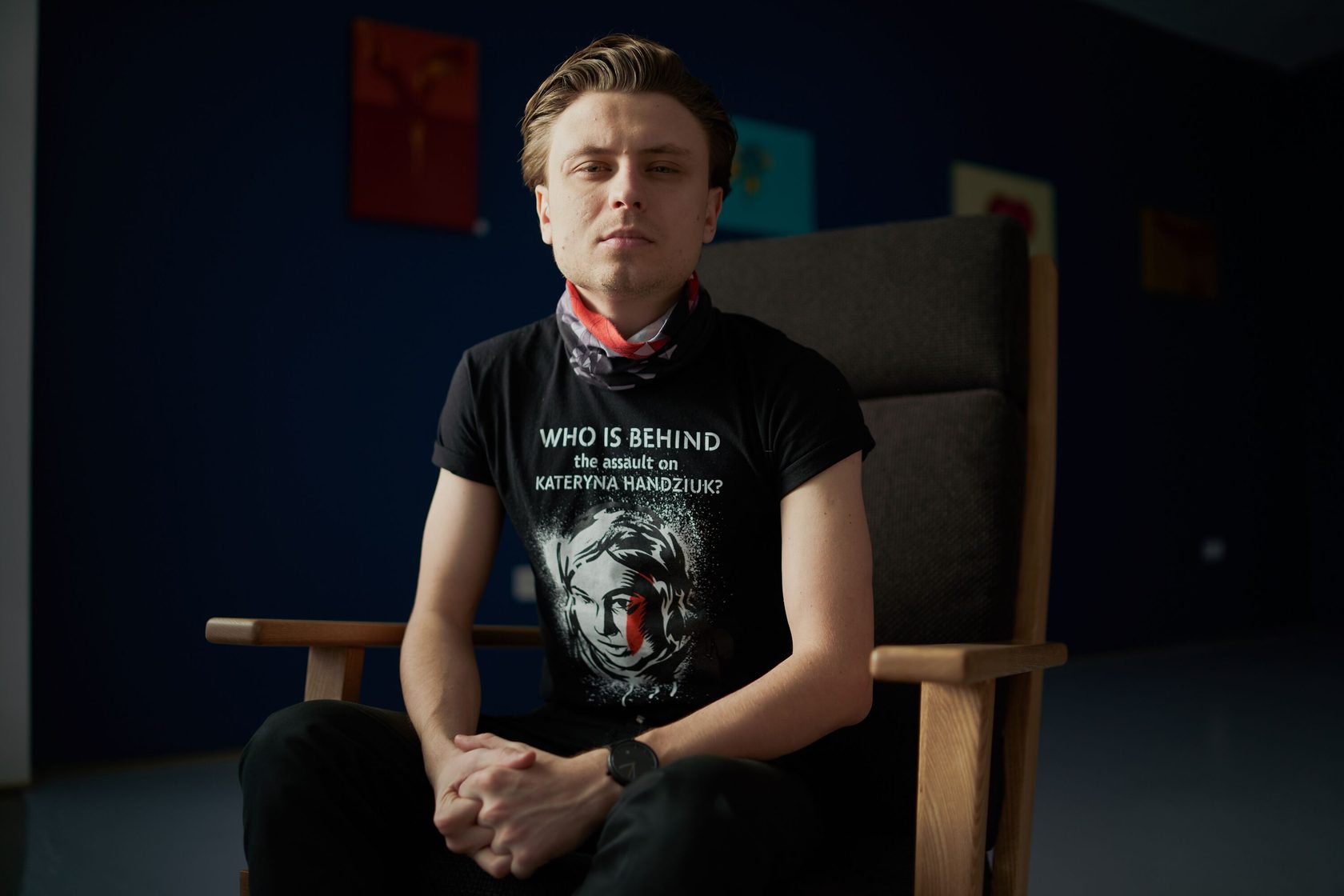About the interview
TEDxKyiv licensee on life’s formative events, civil society, biggest challenges faced as a leader, values and relentless energy to drive change in the country.
Beginning
— Tell me how it all began, what was your childhood like?
— I am from the Luhansk region, from the small mining town of Krasniy Luch (now Khrustalnyi), which is currently occupied. Since childhood, I have seen a lot of different life situations and injustices. For example, my father worked as a miner, and he was not paid for nine months. That is, people received pennies and barely survived. Such circumstances and the state’s indifference simply put people in an unrealistically difficult situation. In my opinion, people simply did not deserve such a fate.
Although what I wanted to become as a child, I do not remember so clearly, but even then, as a child, I definitely understood that I had certain ambitions in the direction of influencing the situation in the country. Everything I saw from a young age, together with upbringing and my own successes, led me to understand that it is necessary to definitely participate in the processes designed to change this situation.
I had a keen sense of justice from an early age. I was always convinced that Ukrainians are a wonderful nation of talented, sincere and sensitive people. Assured,
our people are able to show themselves much better. When our people have all the opportunities for development, new masks will be born, i.e
If Ukrainians have all the opportunities for development, new Ilona Maskas will be born here.
University/Education
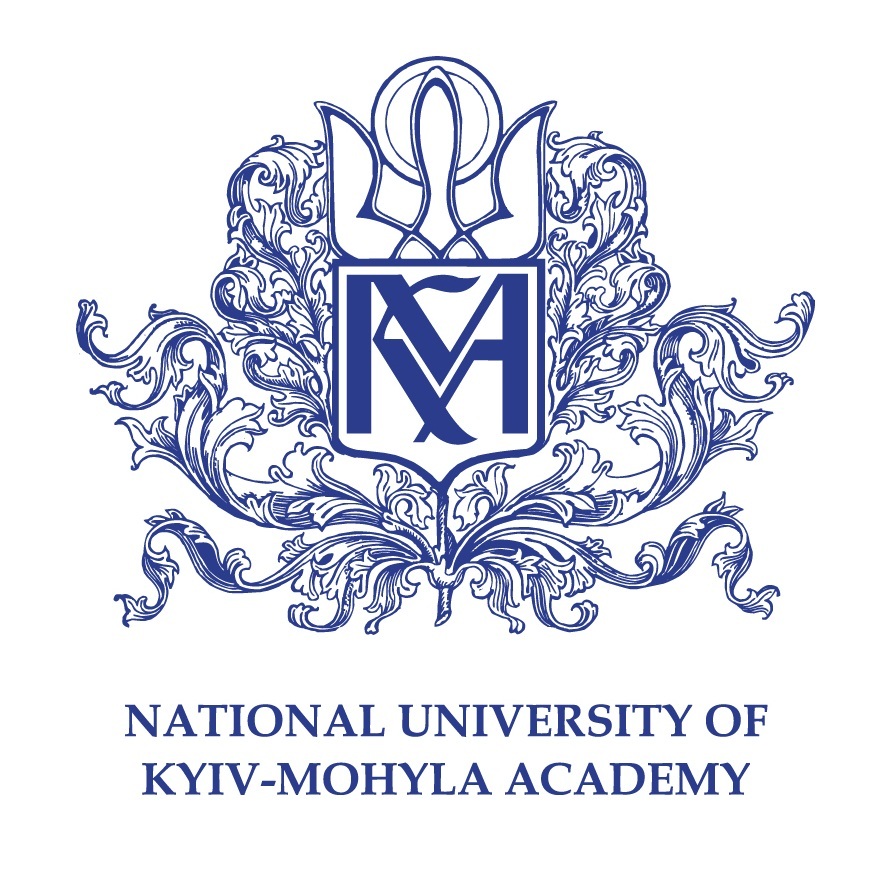
— Tell me about your university years. Why did you choose Mohylianka?
— Mohylyanka is called a state within a state. This is really such a mini-example of how society generally interacts at the country level. Those who understood the values associated with national patriotic responsibility went to Mohylyanka. Mohylyanka gave principles, communicated externally her belonging to the life of the state, instilled personal responsibility. Accordingly, an environment with critical thinking was formed. I think real citizens are being raised within these walls.
The first year was actually spent in super zadrot mode, as I studied as a free listener. The risk was that you are not officially a student – and this does not give you the right to deferment from the army. Relatively speaking, if after a year I had not switched to the budget, I would have to go to serve. But it so happened that he passed: he had the best rating.
I understand that, in general, studying has hardened me super. At first, there was often depression, stress and various misunderstandings. And then you sort of level out and keep going. Mohylyanka taught me that in life (after university) you encounter such things almost every day, and it hardened me. In short, it was a very interesting period, student life taught me a lot.
— Taking into account your move to Kyiv and the change in your social circle, please share how your environment has changed over time, and how, in fact, do you feel about these changes?
— Indeed, with development and movement in its direction, the environment changes. Even my friends today are friends, first of all, in terms of the moment in which we are now. Usually, people are in the same environment precisely at the moment when their interests, values and aspirations coincide. If someone moves on, and others do not catch up, then what do you do? There is no tragedy in this and, in fact, no insults. Everyone understands that this is a conscious choice.
In this way, a truly authentic, authentic environment of like-minded people who share common values, a vector of development, is formed. It is simply unreal happiness to be among such people. Now I am among them – and I am happy to be in this place.
I remember, during the Revolution of Dignity, I broke off communication with many acquaintances, because at that time the issue of values became extremely fundamental.
Euromaidan
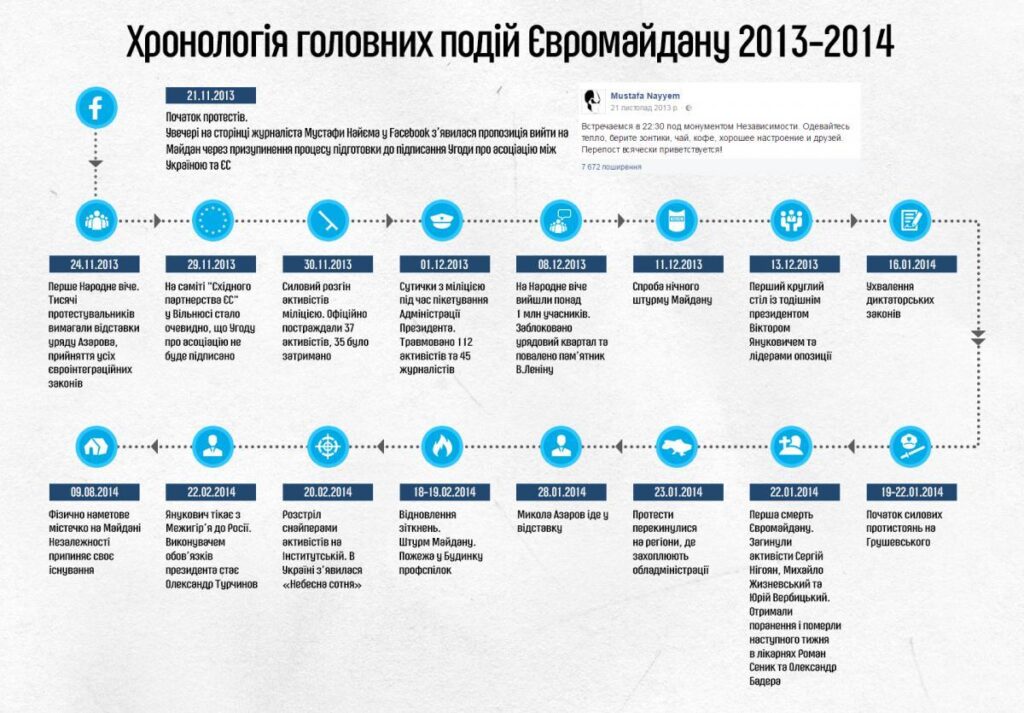
— Can you tell us about your participation in Euromaidan?
— I broke into the revolution on the second day. It’s just that at some point with our TEDxKyiv team, we realized that on the Maidan, apart from students and some limited number of people, there is no intelligentsia in the broad sense of the word, as it was, for example, on Bolotnaya in St. Petersburg. We decided that we as TEDx – a project that accumulates progressive, thinking people – can influence this.
We started communicating with our speakers from previous years and very promptly organized our own mini-project, which was called “Euromaidan”. We filmed videos with famous people in which they briefly explained why it is important to go to the Maidan now, why it is here that the fate of the country is being decided – and posted these videos on YouTube.
Then the “Nezliy Maidan” project was organized – an information center in which I participated for a very long time. We processed all hotlines and requests. We also closely cooperated with Euromaidan SOS. If there was a complete mess somewhere that could not be solved informationally in 5-10 minutes, they directed everything to us.
— What moment of the Revolution of Dignity is most etched in your memory?
— There was a moment when I understood how everything was arranged. I have a very illustrative example, I was lucky enough to experience it myself.
After Nigoyan’s murder, approximately on January 21, everyone was waiting for a leader who would lead and take responsibility. The following day, speeches of various politicians were heard, but only Yatsenyuk spoke in specific terms. He said something like “you see, we are not ready to take responsibility”. That is, it was clearly articulated that there is them and their interest, and there is society. It showed that we are different – you could feel it in the air. Everyone who was present had an epiphany, it was written in their eyes. Everyone at that moment grew up and became more mature. At that moment, I understood: if you want to do something in this country, you have to do it. No one but us.
If you want to do something in this country, you should do it. No one but us.
— What, in your opinion, are the achievements of the Revolution of Dignity?
— It is obvious that the expectations that were there and the results that are there are just heaven and earth. The promises that were made are not comparable. There are also real results of the Revolution, processes and changes that have started: new independent law enforcement agencies (for example, NABU), unprecedented success of the Ministry of Health – finally an example of a full-fledged reform.
There are various achievements, but I believe that the main achievement of the Revolution is that society has grown up and become more mature. At least a part of him has become more aware of what it means to be a citizen and to be responsible for his country. People who felt their responsibility for the future of the country and took it upon themselves were born precisely during the Revolution. They associate their own success with the success of society as a whole. I know such people. There are not many of them, but in general this basic component has appeared in a sufficient number of people so that in the future this process is not considered useless.
People who felt their responsibility for the future of the country and took it upon themselves were born during the Revolution.
Change sector

Who ordered Kateryna Handziuk?
— Tell us about the role of civil society in the socio-political life of the country after the Maidan. How do you see her?
— First of all, society affects everything that happens: it elects specific politicians, it produces specific politicians, it creates or does not create them, magnifies or destroys them, influences certain processes directly or indirectly. Or society is being manipulated. Society cannot be blamed for all the troubles, since it was also born and experienced its formation together with the legacy of the Soviet Union – with the legacy of imperial syndromes and paternalism.
— On what basis does civil society function in Ukraine?
— Most of the activities of our civil society are professional, that is, they are primarily organizations that work full-time and receive a salary for this (from funding provided by a donor or grant-giver). It is clear that specialized organizations that have funding and work on certain changes systematically, structured, with business approaches will definitely be more effective than manifestations of self-activity – individual, group, but in additional time from the main occupation. When you’re not doing it full-time.
I have never been in such a role, so it is difficult to judge. First of all, if public activity becomes professional, it is extremely important that it does not pass into the category of work, but still remains in the category of vocation. It is very harmful when organizations or reform offices are not focused on the result of their activities, but on making the process last as long as possible, because in this way they will receive certain salaries, which in the public sector are very high.
When public organizations are not driven by a sincere desire to really change and influence something, it is actually disappointing. At the same time, today we feel the need for civil society to have influence and still be effective.
It is extremely important that public activity does not become a job, but remains a calling.
— What factors influence the formation of an active civil society?
— The socio-economic aspect has a significant impact: the extent to which the average citizen can distract himself from his everyday problems and devote his attention to something more global, related to wider population groups. In order to think about such things and somehow act, it is necessary, first of all, to realize the basic needs of this person. You cannot be an activist and a fighter for justice without having a single penny to feed yourself, or buy clothes, or have a home. It is obvious that such things must first be provided in order to be able to actively engage in this activity. Only in this case, a person has a sincere inner desire to be involved in it.
You cannot be an activist and a fighter for justice without having a single penny to feed yourself.
— What else should be worked on?
— First of all, you need to understand that you are both a part of the whole and a subject that influences it. One way or another, relying on the social contract and moral principles, society today produces a democratic state of the state within the limits of democratic laws. When we are engaged in national public campaigns, I constantly raise the issue of our subjectivity.
In many cases, through our communication, we shape public opinion and bear considerable responsibility for it. Representing the public, I and other activists during communication with society should set an example, show what can and cannot be done. It is important.
With our actions, we must set new standards and frameworks, raise the requirements for ourselves and our community and civil society as a whole. In this way, new norms and requirements appear in the public discussion, the boundaries of the discussion are transformed. It allows everyone in the community to grow at the same time, and that’s cool.
We must set new standards and frameworks with our actions.
— What are the requirements for civil society today, and what potential does it have?
— Currently, the situation is such that the realities place such high demands on the leaders of the public and political sector that, unfortunately, few meet them. That’s right, the standards have to be extremely high if we are to have any chance of success. On the other hand, one can see a colossal progress if compared with the pre-revolutionary period.
In general, I see a huge potential in civil society. Imagine 35 million self-organized people united by one simple goal: to make Ukraine successful. Obviously, they can achieve this goal if each of us does our part. The majority of the population of Ukraine is the society that should influence what happens in the country.
— What does the fact that the perpetrators of the murder in the case of Kateryna Handziuk have not been found yet indicate?
— This shows that our system of law and order is completely unsustainable. Law enforcement agencies do not properly perform their investigative function, because they have been sham for years, only pretending to operate in accordance with the functions assigned by the state. In fact, they were minding their own business or nothing.
After all, their own affairs – corruption, schemes, business – became the reason that in the regions crime and law enforcement officers are often too connected, even family ties, and have common interests. Accordingly, attacks on dissident activists, journalists and human rights defenders have repeatedly taken place either with the help of local security forces or with their cover and tacit consent.
Currently, if nothing is changed, the trends will only worsen the situation: no one believes in the Ministry of Internal Affairs. The capacity of the institution will be negative. Radical changes are needed. In the case of Handziuk in particular, there is hope for a new political leadership of the GPU and the SBU, which, in fact, are dealing with this case and have already made new promises, but you need to rely only on yourself.

— How do you feel about the newly elected head of state, Volodymyr Zelenskyi?
— At the moment, I am not yet in despair about his intentions, but I am deeply convinced that his approaches and decisions are often completely wrong. The reason lies in his inexperience and lack of practice in the socio-political context, as well as the trail of his communication and image among the progressive part of society. In addition to the fact that Zelensky is self-confident and chose such a strategy, his political opponents also tried. After all, these two factors, even during the election period, did not allow him to attract the support of the best personnel during the formation of the team.
In Ukraine, patriotism is built on faith in a better future.
— Actually, your answer is somewhat intertwined with the concept of patriotism. Share what patriotism means to you, and what is it based on today in Ukraine?
— Patriotism is a sincere desire for a better life not only for oneself, but also for the people living nearby. It is obvious that we are bound to what we share: to ethnic culture, history and, ultimately, to the territory. This is a mix: striving for the best for an individual person and our unity in this direction. As a result, patriotism can unite people who believe in a better future. In particular, it is about faith in that wonderful Ukraine, where everything is flourishing, where people are happy, super decent and united. Today in Ukraine, patriotism is built on faith in a better future.
TEDxKyiv
— In your opinion, was TEDxKyiv 2019 a success?
— TEDxYouth@Kyiv 2019 was a success, that’s for sure. We improved production events, did not lose other directions in terms of quality. There were more than 700 guests and 15 speakers. My top speaker is Stanislav Greshchyshyn. But I am biased against him: he is my friend.
— Tell us how you got involved in TEDxKyiv?
— While still a student, in 2012 I just came to TEDx to volunteer. At first, I was hauling all kinds of heavy equipment, in other words, doing menial work. However, even then I understood that this is a very cool topic. What is the value of being surrounded by people with progressive thoughts! Moreover, the things that came from the TEDx stage are capable of changing views and opinions, influencing attitudes towards things, provoking active actions, changes in oneself. I really liked it. Then somehow it happened that I showed myself well – and I was noticed.
— Can you share the moment after which serious attention was paid to you?
— In 2014, there was the most extreme TEDx that we have prepared. It was called “For Horizons”. The trick was that Olena, who was a licensee at the time, was in Dnipro and could not actually manage the team. So we all together chose the people responsible for each direction – and started organizing everything ourselves. In parallel, various stages were launched, speakers were being prepared.
However, I began to notice that something was not adding up, gaps in the organization began to appear. I decided not to be silent and started talking to the people responsible for this. At that moment, I tried to gather all our efforts to make everything happen. We did this TEDx – and it was a very interesting challenge. Bohdan Gavrylyshyn and Olena Styazhkina spoke at Ted in 2014, who spoke specifically about Donetsk. There were indeed people on our stage who partially answered the questions. – precisely in that uncertain period.
— Did you have plans to lead the team then?
— Already after Ted, we got together as a team and discussed our future. During this meeting, there was a moment when it was actually decided who would be the next licensee. I didn’t have any ambitions at all, I didn’t even think I was ready for it. After all, I had only been in the team for a few years, and everyone was much more experienced and older than me.
And here they tell me, they say, “we believe that you got your bearings in time, saw the problems, focused everyone on them – and, in the end, everything happened. You, in fact, arbitrarily assumed the role of the main organizer of the project. We think that you it was a good success – and we are ready to give you a chance.” Hearing this, I was very surprised. Even later, mentally returning to this situation, I realized that this is what happened. However, it was unconscious at the time: we simply had a “fire” and needed to act.
— Tell me about the team.
— In fact, this is a team of crazy dreamers who believe in their cause, believe that we are somehow positively influencing our Ukrainian society right now. Everyone is completely different, but the unifying factor is the belief in such influence. In general, volunteering at TEDx is a kind of philanthropy. In life, each of us does our own business, but we are essentially one. Everyone realizes this – and it’s cool.
The team of TEDxKyiv organizers

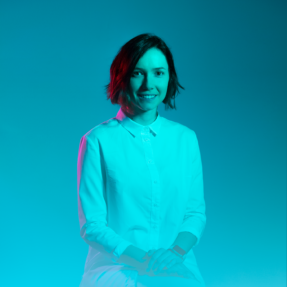
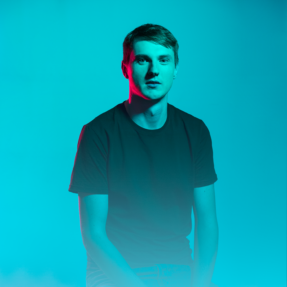
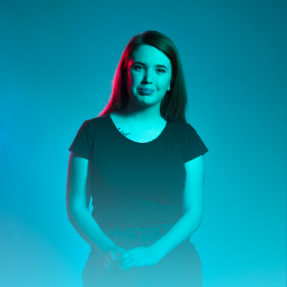
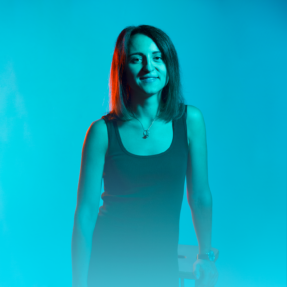
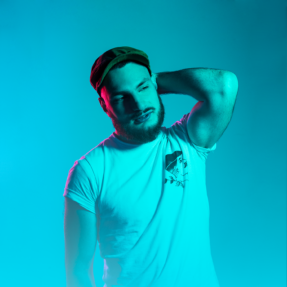
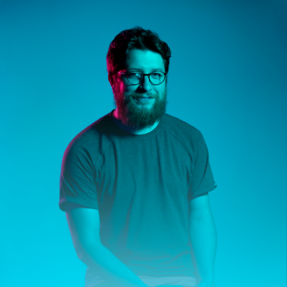
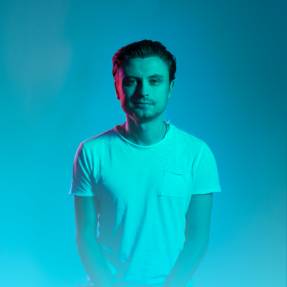
— Remember what was the most successful TEDxKyiv under your leadership?
— The same TEDxKyiv in 2015 was a leap up. I remember when it took place, we realized that we had made an incredibly cool event. We have significantly raised the level in everything – both in terms of the content we have prepared and in terms of production. The quality of the entire organization has also increased quite a bit, besides, a record number of people came. We jumped over our heads – and felt great pride for ourselves.
But, as now, I remember the moment when I have to go on stage at the end and, as the main organizer, thank all the volunteers and partners for organizing the event. I remember going on stage and feeling that everyone was really impressed. The audience did not expect to see such a young dude as the main organizer of such a huge event.
If you look at our videos from last year, we really worked on the content as much as possible. When I say that in 2015 we reached a new level, it is obviously a new level again, because the license is also new, and TEDx now lasts not one, but two days. Last year there was a record number of visitors – more than a thousand. When the brand gets even more attention, the additional responsibility comes on, as does the influence that future speakers will have.
— What about the biggest challenge that you – as the head of TEDxKyiv – had to face?
— In 2016, we had problems with the license, because the standard license of the first level provides for a limit on the number of guests in the hall – up to one hundred people. In general, I tried to be as honest as possible with the New York office. Yes, after we did the 2015 event, I wrote them a letter. Like, I knowingly violated the license because otherwise we can’t even economically pull off this event.
In 2016, the situation is repeated. The only thing is that I’m not even writing this letter, because I’m full, I’m running out of time. After the event has occurred, we send a report. I am immediately applying for a TEDxKyiv live 2017 license. When they answer me from the main office, they say: “Dude, why did you fail the license twice in a row. We just take the license from Kyiv.” In general, they got along.
We were very scared: in addition to the fact that I will never be able to organize TEDx again, Kyiv is also banned from organizing events for a certain period of time. At least until someone from the team passes on the experience to someone else. So when a new team appears (and if they are confident in this team) – we have to hand over the site and all social networks to them. In short, we were seriously scared – it seemed that everything was lost.
— How did you get out of this situation?
— We enter into protracted negotiations with the central office, confess everything, explain everything. Our Skype conversations stop at the fact that they say to me, “well, okay, coming to the TED fest in New York – here we will make decisions.”
Here’s the thing: With only 4 weeks to go, TED Fest starts on Sunday. We begin to quickly collect money for tickets and the organization of the trip in general. At that time I had neither my finances nor a visa – there was nothing. When the first 500 dollars that we raised appeared, I rushed to buy a ticket, but it was already sold out. It’s a complete mess, but at the same time, I’m the first in line on the wait list.
On the night from Wednesday to Thursday, a letter arrives, saying, “Congratulations, it’s your turn, pay.” On Thursday I apply for a visa, on Friday I go to an interview at the embassy, because it is an emergency with a business need. And miraculously on Friday evening they opened my visa. At the same time, thanks to patrons, an amount sufficient to go to New York is collected, tickets are bought – and I will be there on Sunday. Conventionally, I was the last person to get on this train.
— How was your trip to New York?
— After arriving, I get to know the people from Ted’s central office, and they receive me very cool. Also, one of the key people at Ted, who was responsible for licensing at the time, is a dog fanatic. The fact is that Yura Marchenko, the chief editor of the platform, was among our visitors in 2015, and that year he came with his dog Agamemnon. We had this pug lying and grieving in the background of Ted in the photo report. They had this photo printed at the front desk, and the same story in the licensing man’s office. Well, in short, they knew about Kyiv TED.
Among other representatives there were several delegations from Russia. They were not pro-Kremlin, but they were outside politics. It is difficult for them to raise socio-political topics because of the known risks. In general, TED in Russia is a bit distorted and limited, because there are topics that they simply cannot touch. I got the impression that people in Russia live in several parallel realities.
All in all, it was a powerful week. Basically, there, in New York, I implemented people’s diplomacy. It was necessary to explain what was happening in the country in the context of war, revolution, reforms and the fight against corruption.
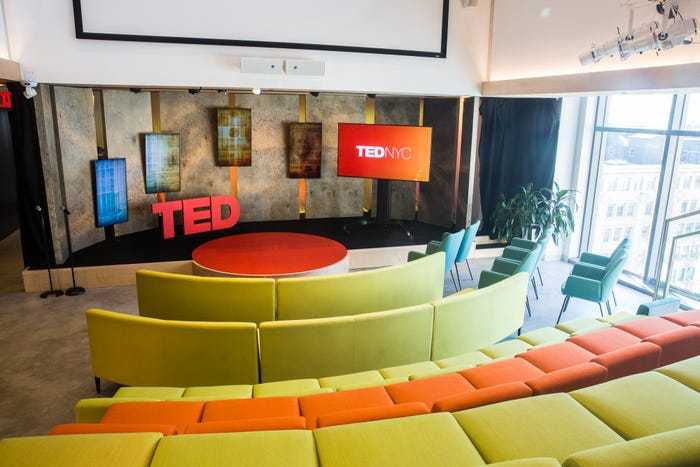
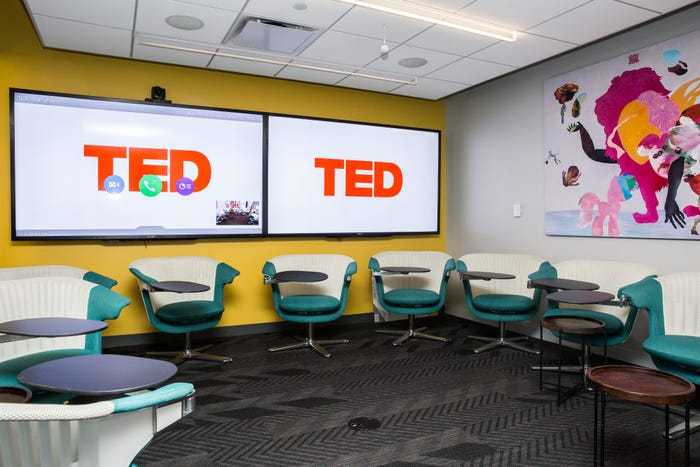



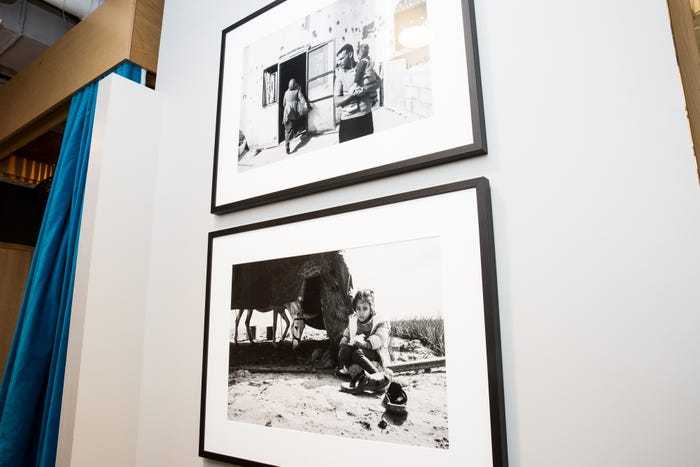


— In the end, everything worked out?
— Everything ended successfully. We first upgraded our license to allow for events of more than 100 people, and with the result for 2018 we received a second level license. This license allows the event to be held over two days instead of one. It’s a big difference, because when you go to a global TEDx that lasts 5-6 days, you really feel it, you feel that it’s an incredibly cool story. You dive head first into the atmosphere – and already in that environment you discuss existing ideas. The saturation of this concentrate flows from day to day – and on the second day the brain begins to perceive information a little differently. Thinking in a complex of all these ideas is unreal. Actually, the second level license gives you at least a little taste of this moment in terms of atmosphere.
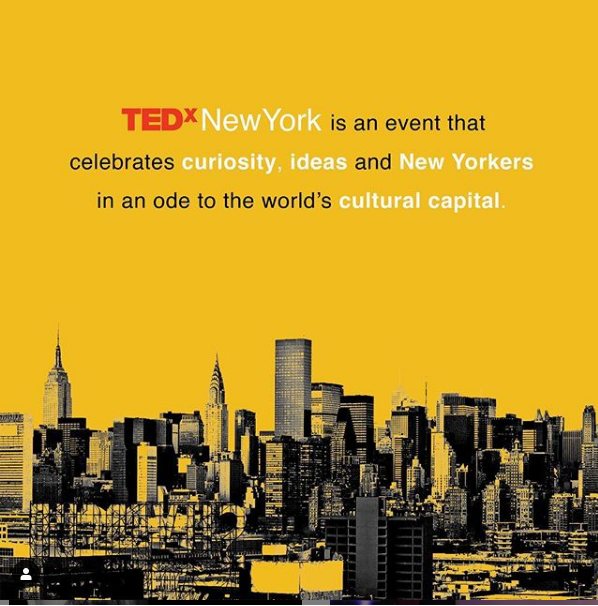
— Does TED have a certain key idea?
— The key idea of TED is the search for valuable ideas that are worth spreading among the masses. It is about those ideas that can influence specific actions of people, ideas that stimulate rethinking of certain things and attitude towards something.
Our task is to find carriers of progressive ideas and train them. Our speakers should be able to convey their vision briefly and quickly in a very compact, understandable format for everyone.
The goal of TEDxKyiv is to focus more on finding bearers of ideas in the local Ukrainian community. Every year we find Ukrainian nuggets.
LOBBY X

— In addition to TEDxKyiv, you also have your own business. Tell us where the idea to create Lobby X came from?
— From economics, we know that there are two capitals: financial and human. And even from the point of view of a business approach, I had the understanding that “okay, I don’t have an oligarch dad or any other financial capital, so let’s focus on this and develop the project as much as possible in the direction of making it perform its useful function.”
This project was conceived as one that aims to help find people for work in the change sector. After all, any process rests on people who directly implement certain changes. It does not matter whether it is business, public or public sector.
Also a very important point: we have certain criteria for cooperation both at the very beginning and now. At the same time, we help some for free, and we don’t even work with some for money.
— What are the criteria for cooperation that you mentioned?
— We have a certain hygiene. If we are talking about public organizations, then it is definitely not about the simple distribution of grants, but the effective use of these funds. Also among the criteria are transparency of work and zero tolerance for corruption.
When it comes to business, again, we only work with decent businesses. We refuse any business affiliated with dirty capital, oligarchs and just some dishonest dudes: we don’t need it. We have demand even without them – we have not been looking for a single client so far.
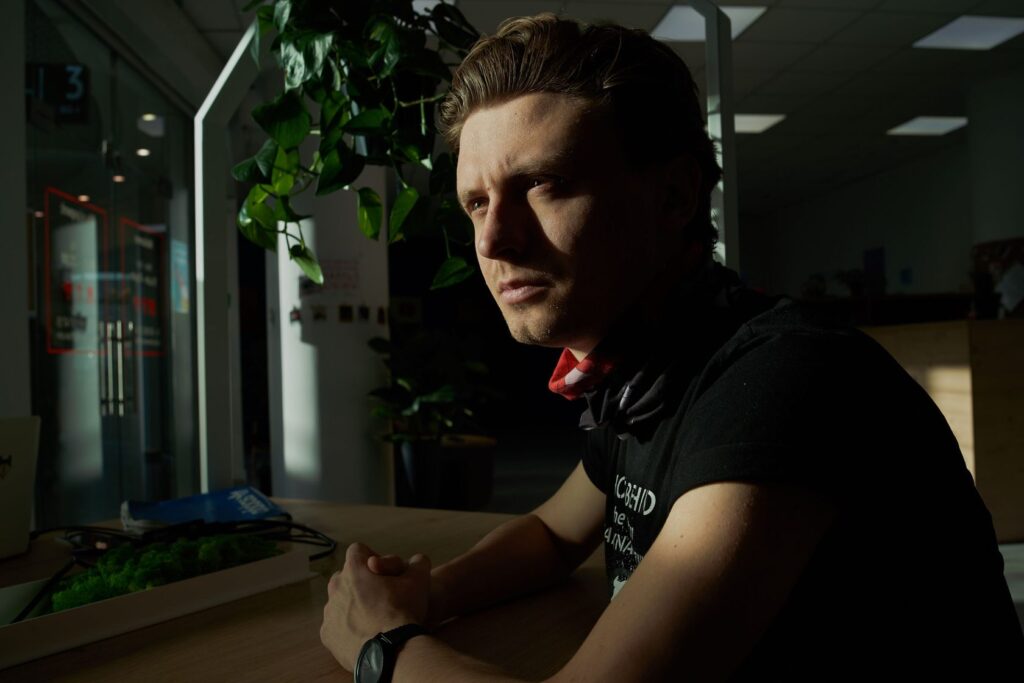
— Share how exactly the project was launched, and what it is now?
— In general, I launched the project on my own. I was basically alone for a year and a half, then they came to the brand. We started working in the format of social entrepreneurship. I have invested a lot of time and money in it for a long time. Later, we made a start-up, began to develop a commercial direction. I reinvested part of the profit from the commercial direction in the direction of helping decent organizations.
Currently, it is a more or less sustainable project: 5 staff members, 15 freelance recruiters, many orders, ambitions and prospects for development.
— Can you tell us something about the experience of cooperation?
— In the previous government, we fully provided for the Ministry of Health. In general, we support various reform offices, organizations that work within the framework of decentralization on various components related to medical reform. We also work with NABU, help several departments of the Ministry of Economy. In particular, these are public purchases, all ProZorro projects and everything related to export promotion. During Danylyuk’s time, they worked with the Ministry of Finance, during Gontareva’s time – with the NBU.
Back in 2015, we were volunteers and helped launch the National Police. We have long supported the reform of public broadcasting, even in the regions. In fact, the Ukrainian Cultural Fund was raised from scratch: the first 14 people were our people.
— What can you say about ambitions and plans for the future in the context of project development?
— We decided to set a strategic goal: in the long term, to launch LobbyX in the cities of the largest Ukrainian agglomeration abroad.
Last year in March, we launched in Warsaw as a digital representative office. Next in the plans are Toronto and New York. We understand that there are many Ukrainians in these cities who at one time left Ukraine and were able to establish themselves there.
We were aware that during the Revolution, the Ukrainian diaspora showed itself very powerfully: their support made many defining moments possible in terms of the world’s attitude to the events in Ukraine. These people did not forget their country, they helped. This shows their values. After all, these are people who have experience living in developed democracies. They, relatively speaking, know how it should be. This is evidence of their certain level related to the professional aspect.
— As far as you know, is anyone already doing something like this?
— No one does this. All agencies, on the contrary, work on relocation when they take out our programmers. In general, there is a constant process of migration within the country. In principle, we do not plan to work on relocation – we plan to work on a comeback. There are a lot of opportunities in this direction, but many people from the diaspora do not fully understand it, because there are many myths.
“Changemakers”
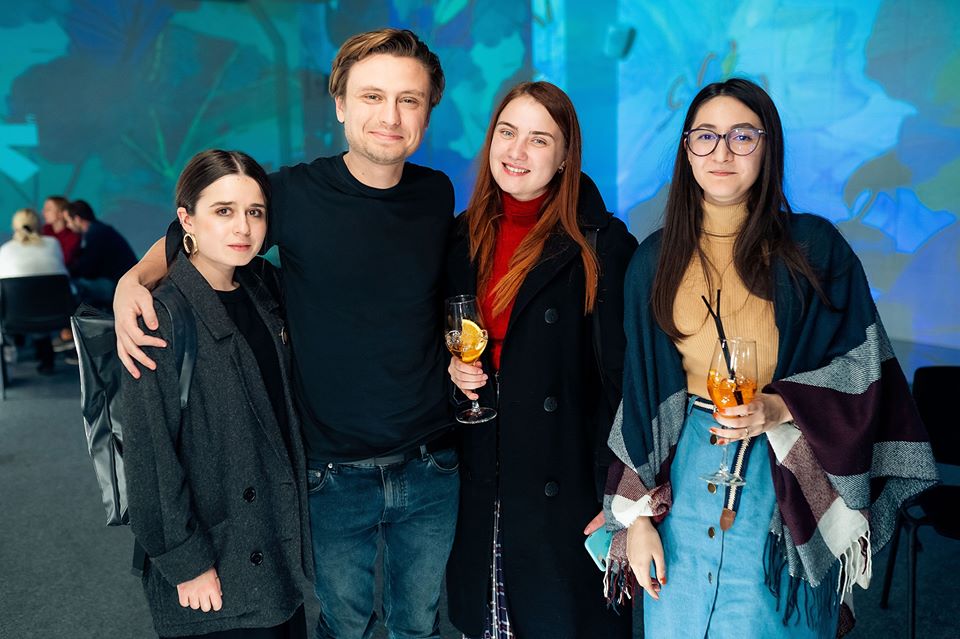
About 200 active people attend the meetings of “Changemakers” every Thursday
Who can you meet at meetings of change makers?
When you come to the networking of “changemakers”, in addition to your friends and acquaintances, you may accidentally meet Oleksiy Honcharuk, Ulyana Suprun and Maksym Nefyodov.
— Tell us about the networking events that you organize. How do they happen?
— At these events, young people simply chatted, got to know each other, sipping a glass of wine or cider at the same time. The goal is potential collaboration and exchange of useful information.
When you come to networking, you just might be looking for a new apartment or job. There is a very high probability of getting into an environment that will be useful to you. Also, during networking, you can find like-minded people and companions for communication, in some places you can find friendship, and sometimes even love.
— What are the main challenges that the meeting of “Changemakers” is responding to?
— At some point, I had the impression that everything was not going the way I wanted. People are depressed, there is no enthusiasm. I had an empirical function when I was engaged in employment, in contact with everyone who is doing something useful for change in Ukraine.
I knew this problem really existed. After the Maidan, people believed in changes, invested their time and money. However, by then many had already lost faith, their hands simply began to drop. At that time, it seemed to everyone that she was just a total traitor, although I do not remember that any really traitorous events took place.
Rethinking all these sentiments, we decided to try to choose a place and time, start meetings and call it changemakers. The idea was that people who are working on changes in the country or at least want to join the change-making processes would come to these meetings.
— What kind of people do you invite to meetings of changemakers, and how big is your audience?
— Announcing the event, we say that this is a place where like-minded people meet. We aim to unite people who work for changes in the country and believe in them. We invite people from different sectors, our focus covers both public reformers and public figures, as well as people from media and culture, science and business. It started to work, people got to know each other and actually agreed on collaborations and joint projects in front of their eyes.
Often people come simply for reflection, to understand what is happening in another sector. Suddenly, they realized that not only their small teams and environments believe and work for the future, but that there are others as well. It’s nice to know that you have like-minded people who match your values and criteria. People feel the need for this. It was around such a complex of people that everything worked. In fact, it is a great privilege to know that you are not alone.
Now, on average, up to 200 people come. Networking takes place almost every Thursday. We can only miss due to some technical problems. For example, a convenient location in the city center is mandatory for us.
— As organizers of networking events, do you have any material or similar expectations from them?
— An important point: it is necessary to understand that networks of change-makers do not represent a project in any way. It is not something that will be converted into financial or political capital. Many people ask us the question: maybe you are a political party? Or: maybe you’ll create a site or a Facebook group – just for convenience? We say: no, let it be as a tradition, as a legend, after all, as a stable story.
Of course, it can be said that our networks show signs of movement. People really feel the need to unite around common values, have certain expectations from each other. However, if it resembles a movement, then the idea was that its organizers could renew themselves: previous ones would fade into the background, new ones would come.
I believe we have started a good tradition of matching watches. This whole story is about people working for change, driving progress in their local environments, on the scale of their cities and the country at large. It is thanks to such an environment that such a phenomenon and movement became a reality.
— What else, in your opinion, is networking useful from a practical point of view?
— Networking is also useful because it saves time for personal meetings. Usually, all people are very busy with their affairs and have almost no time. When you have many meetings planned at the same time and you, trivially, physically do not have time, you can invite each of these people to networking and have time to talk with everyone. For example, let’s take a classic meeting: it takes about 40 minutes of time, of which 20-30 minutes are purely ritual. Usually, all KPIs (key performance indicators – ed.) from the conversation are achieved in 10-15 minutes, during which specific cases are resolved.
I taught people how to practice and many started making networking appointments, even a few. In this way, you spent your time efficiently, saw your friends and acquaintances, and met new ones. Your clocks have synced up and it’s all at a fast pace because you’re super active people. When I come to networking events, I really like the environment I’m in. When you see these people, you believe in the future of Ukraine. It inspires me.
What do people who come to your meeting get? They solved the problem with you just as super quickly, and they also saw, oh my God, how many interesting people there are around, with whom you can also talk about something. It works well.
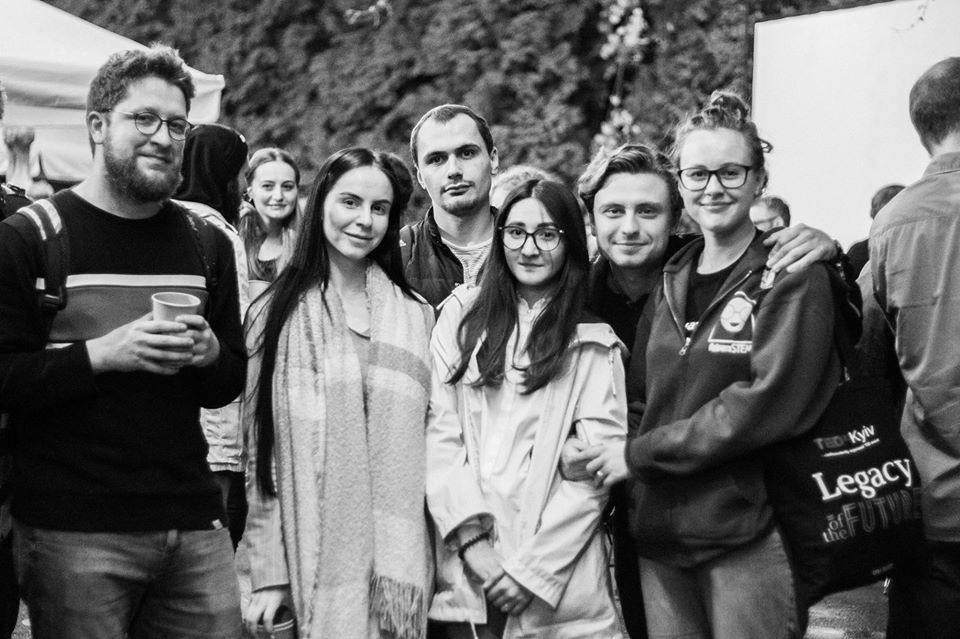
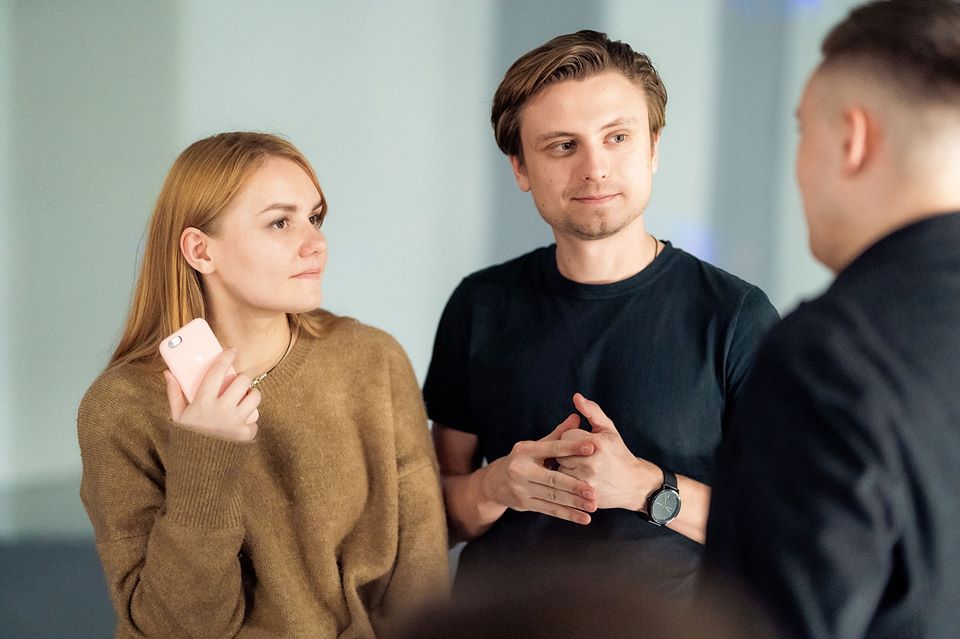
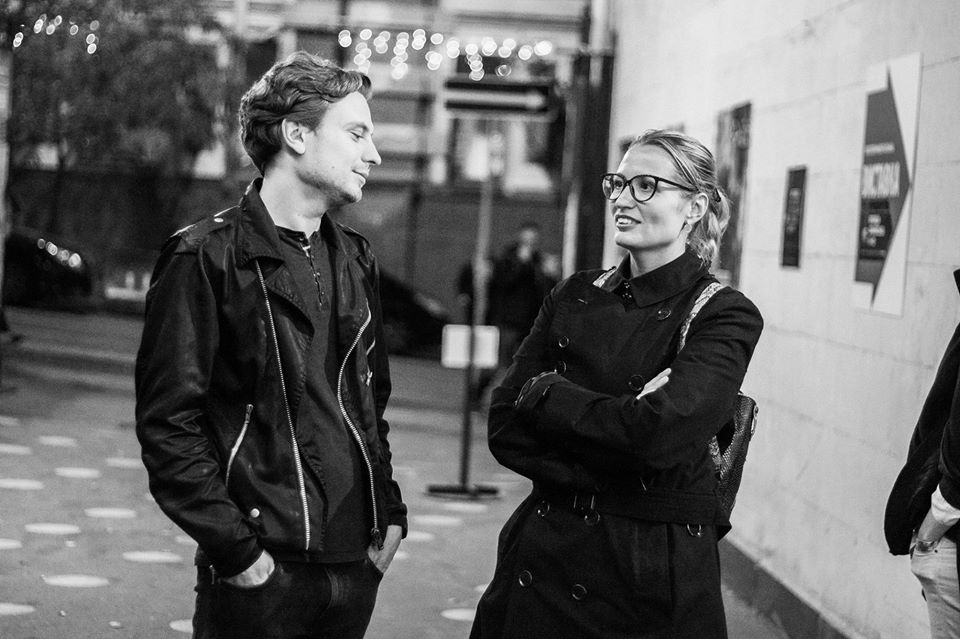
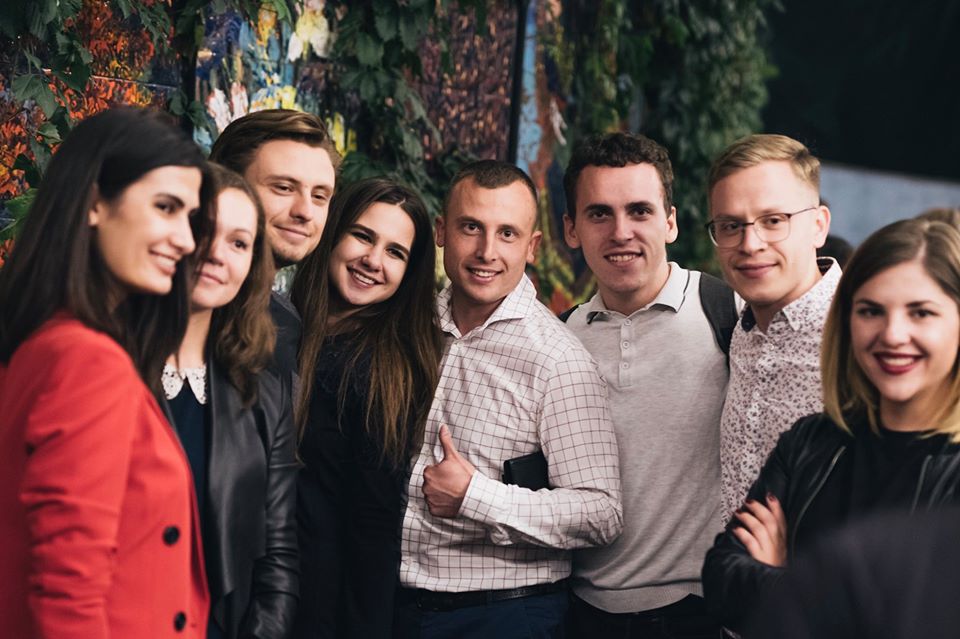
— Will you give your own example?
— Since our TEDxKyiv team is approached with commercial requests for speaker training, I recall one case related to this. It happened to be Thursday, and that day I had to prepare for the speech of the founder of YouControl, Serhii Milman. It so happened that all the acquaintances with whom I had some business planned to be at a networking event, and I had to go to it too. I say: “Sergei, networking is planned in parallel today, haven’t you heard?” Answers: “No, I haven’t heard.” I say: “Let’s go, I’m sure you’ll like it.” He went, met a bunch of acquaintances.
There were many fundamental discussions that Thursday. Especially at the end of the evening, when journalists from “Schemes”, “Bigusa”, “Slidstva” remained. Info”, human rights defenders and lawyers of the Heavenly Hundred. We began to discuss topics related to the system of law and order and human rights protection, discussed various cases. In the end, the discussion ends mega-effectively: with expertise from all sides and relevant conclusions. Actually, all these people were needed in order to comprehensively consider and formulate a conclusion. It would not have been possible without them.
In the end, we see him afterwards and he says to me: “Look, this is so cool! Invite me again. I was so high.”
Leadership
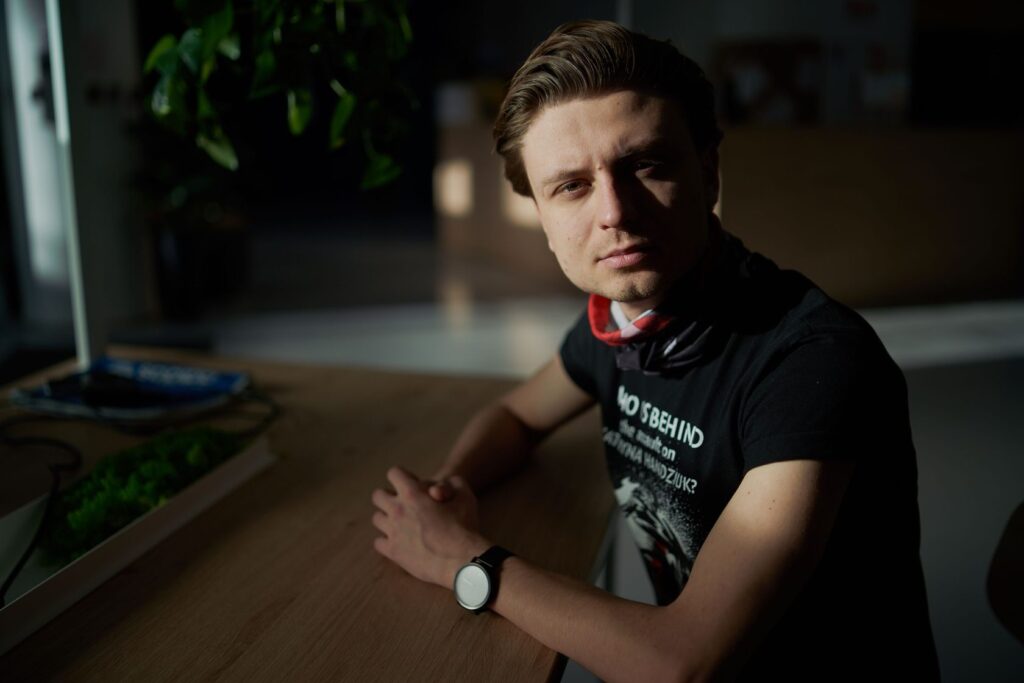
— You seem like a person who knows how to take on huge responsibility. Please share how you do it?
— Obviously, there are many challenges ahead of us now. I would like all citizens to be responsible not only for themselves, but primarily for themselves. Unfortunately, today many people are not even responsible for themselves. However, the ideal situation is not only when you are responsible for yourself, but also responsible for your group, your environment and society. Responsibility is a quality that is sorely lacking in society today.
Conventionally speaking, if everyone realizes their responsibility to themselves and their society, then everyone will finally start working for a successful Ukraine of the future. Many people sacrificed their lives so that we now have this chance. After all, those people definitely showed their strength, sacrifice and responsibility. Given their contribution, everyone should feel this collective responsibility in moments of weakness. You need to say to yourself, “Hey, what a weakness, dudes died at the front, and I’m killing myself here for no reason.”
If everyone realizes their responsibility to themselves and society, then everyone will finally start working for a successful Ukraine of the future.
— I wonder how you smooth out sharp corners when working with a team?
— Sooner or later in any project there are sharp corners. In this case, there are two options. The first is when you smooth out sharp corners on your own, the second is when you have to have unpleasant conversations. When you not only coordinate, but also have to take on negative roles, you move to a new level. Of course, having unpleasant conversations is much more difficult.
Before, I just took and independently did this or that task instead of the person who did the work. However, when there is no opportunity and time to do such things on your own, you need to say: “Dude, come on, you’re a hack! You’re irresponsible, maybe you don’t belong here?” I have learned to be cool when it comes to saying goodbye to someone.
This applies even to those cases when I have a personal relationship with these people. People who tinker may be cool on their own, but the function of a leader is to see the big picture and understand the strategic destination the organization is moving towards and organize everything to achieve that goal. In this retrospect, such a person in the team is simply taking someone’s place.
— Did such a pragmatic approach come easily to you?
— I remember that it was difficult for me at first, but soon I got used to it. At some point, you just realize that, living at a frantic pace, having a bunch of different projects and tasks, you have to spend your time as efficiently as possible.
Team members often scold me for my form. It is quite possible that my form of information and communication is sometimes not very correct. Indeed, sometimes I did not like the form, but the decisions that were broadcast through it were clearly correct.
— What, in your opinion, is basic and at the same time very important when talking about the role of a leader in a team?
— I always try to remember that it is not always possible to be on the same page with everyone. This is very important, because sometimes the picture of the world and the vision of what state the project is in differ. Given such realities, it is necessary to point out existing sharp corners to other team members, discuss them and, ultimately, solve them together.
Before outlining an existing or potential problem, the end goal must first be properly communicated to the entire team. It is worth realizing that from the point of view of ideology and philosophy, the leadership role and its meaning are to be more than just a task manager – it is always a huge complex of things.
I used to see everything through rose-colored glasses, saying: we have a mission and values, after all, we have assembled a team of like-minded people who believe in what they embody. Of course, values are very important, they are the foundation, but at the same time, each person can have different motivations.
— If, say, someone wants to become a leader, what would you advise them to think about first?
— If you want to become a leader, you must have ideas that can unite groups of people, because these people feel their inner desire to be involved in something. I am sure that if there is proper communication, there will definitely be like-minded people who will believe in your idea and unite around your projects.
At the same time, choosing an idea should definitely not be approached as marketing, that is, looking for an idea that you want to implement, focusing only on demand. The bottom line is that the leader should be the most fired up, the craziest person in the project. Otherwise, your target simply won’t be able to infect others. To do this, you just need to decide what exactly you want to influence in life and exactly what things you want to implement. To implement all this, you just need to find a specific tool for how to achieve this vision.
The leader should burn the most, should be the craziest person in the project.
Visionary

— How has the activity you are engaged in affected you?
— When I started working on projects, I grew up very quickly, the ability to take responsibility and expand the scope of my expertise was formed.
It is very important to understand the ultimate vision, as well as the fact that you have a limited resource of health and time. You have to realize that right now, in these conditions, taking into account the vision, as well as the available tools and projects, you need to properly redistribute your efforts so that everything is as efficient as possible.
Now I have already learned to simultaneously deal with several difficult projects that require full-time attention. I also learned to coordinate a large number of projects on a regular basis, systematically. In any, even extremely complex process, the main thing is to be able to set priorities correctly.
In any, even extremely complex process, the main thing is to be able to set priorities correctly.
— I wonder what you mean by the concept of visionary?
— Visionary is when you reach the level of understanding of the overall ultimate goal of your specific project. During the implementation of the project that you lead, you grow together with this project as a manager, as a leader, as a visionary. Within the framework of the ecosystem, in interaction with everything that is happening in the world, you understand what place this project has, what function it performs. It is wonderful when it is implemented for the sake of some higher general goal, and not just your personal one. For example, each of my projects occupies a certain place in the general ecosystem, which, in the end, gives its result in one of the directions.
— You are a person who represents at least several well-known brands. Tell us, how do you feel about the concept of a personal brand?
— A personal brand can be a completely artificial story that can be created if you know how. There are a lot of trainings and courses on how to create a personal brand. It makes me sick. Wasting your life, your strength, your resources, investing your time just to create your own brand – does it have any ultimate meaning? No, you just need to do specific things, implement projects with a specific result. These things will create your reputation, your image, your personal brand, and you will not work on it. At the same time, you understand that you have spent your time on really valuable things that have some kind of real embodiment, that is, not on the screen, but on the essence.
If you work with meanings, set yourself the goal of some specific changes, they may take a long time to materialize, but after that they have a real effect.
Values
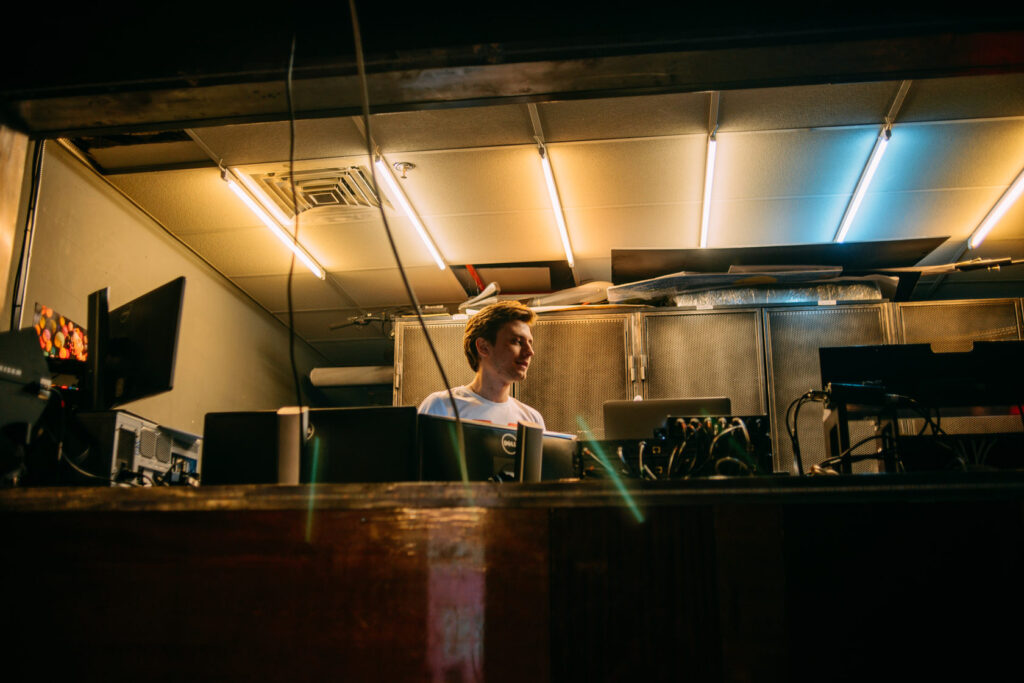
— If we talk about the real thing, what values do you value most in people?
— Now they ask: “What qualities are most needed by people working on reforms?” In my opinion, this is definitely professionalism and, nevertheless, decency. I say “decency” because our system is so rotten that today we need to build that rod of steadfastness through which we once pass – and never return. In the end, everything depends on decent people with the right values. Let these people make mistakes, but they will not be saboteurs.
— Probably, it is largely about professional activity. What about you personally?
— I really value determination in people, when a person is not afraid to act, does not neglect his capabilities, his mind. Life is movement, and in order not to stop, it is very important to dare to take certain steps. Of course, you can plan for a long time, but in no way act in this direction. You can make mistakes in life, but you can’t be afraid and succumb to weakness.
In general, I appreciate people who are themselves, and do not pretend to be someone. That is, to be, not to appear. And “to be” is just about the fact that you first do something, and only then does it shape you. Not with words, but with deeds. I believe that the world rests on such people. The more people with such a worldview and mindset in our country, the faster Ukraine will find itself at the right point, which we strive to achieve.
If you respect yourself, your life and you don’t care about yourself, you treat life responsibly.
— Is there one fundamental thing on which your values are based?
— My attitude is based on what I have always understood: time is the most valuable human resource. Because our life is not eternal, time is limited.
If you respect yourself, your life and you don’t care about yourself, you treat life responsibly. That is why my attitude to time is as frugal and delicate as possible.
Of course, at the same time, you can engage in cultural life, education or recreation – that’s also cool. Everyone himself balances the set in which he feels harmonious. At the same time, it is quite normal for someone to waste time: due to laziness or lack of determination, they do not start to act, although, in fact, this desire is there. Accordingly, you need to understand what you use it for. It’s everyone’s choice – what they want in life.
— Now do you feel a certain responsibility for the values that you embody in specific projects?
— Yes, at some stage you understand that you are responsible for an unreal brand. For example, TEDxKyiv, which has thousands of fans in Kyiv and throughout Ukraine. You are aware of the impact this project has on society. You have to sleep well in order to be as sure as possible that everything is done right in view of this influence, this reputation, this importance of everything you do.
A similar situation with LobbyX. When we understand that we influence the destinies of people (after all, they work in the places that we have chosen for them, spend their time, their lives), we must be convinced that we send people to work in worthy places.
Adherence to principles
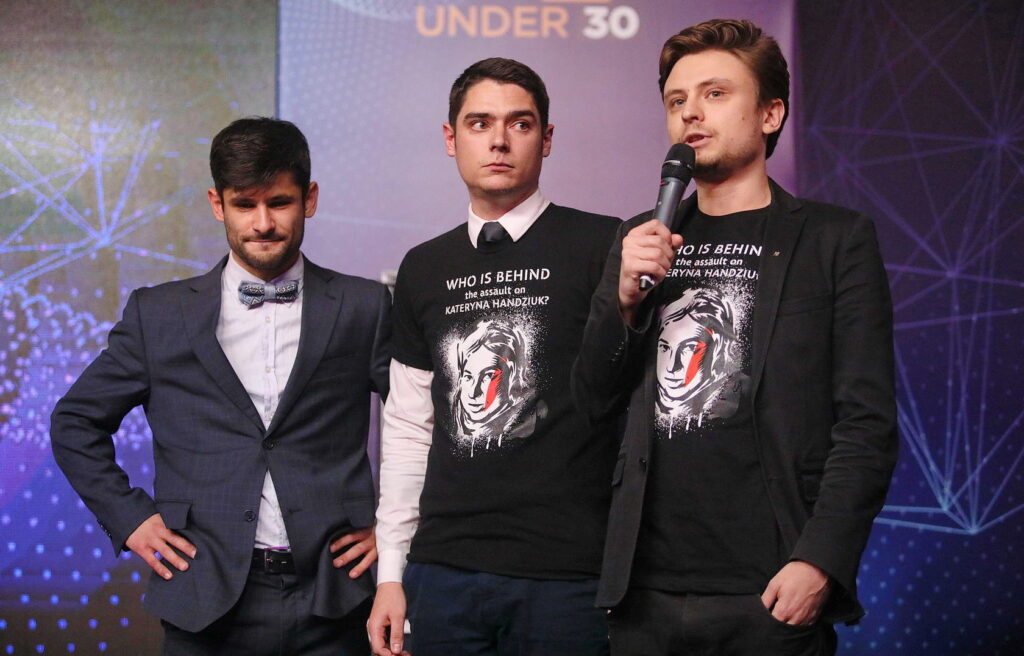
— You demonstrated your principled position by refusing the Kyiv Post newspaper’s award for the most successful Ukrainians under 30 years of age. What was the reason for your refusal?
— The fact is that the Viktor Pinchuk Foundation was the direct sponsor of this award. This award, like many of his other activities, projects and programs (in particular, the YES “Yalta European Strategy” forum), is one of the tools for whitewashing his reputation.
During the rejection of the award on the stage of the nomination, we said that his media empire, in particular the newspaper “Fakty” and “ICTV”, was one of those that at one time whitewashed the reputation of Leonid Kuchma in the process related to the murder in 2001 th year of the talented journalist Heorhiy Gongadze, who did not remain silent and really brought the truth to the masses.
And in general, of course, any action must be evaluated in context, because if it was done secretly, simply agreed with the organizers, then it would not have any publicity. Such a discourse would not arise in society. People wouldn’t think about whether it was a problem or not.
— If we look at this situation more broadly, what issues did you aim to actualize with your position?
— Understanding the crisis of reputation in the country, realizing that this is a very big problem from the point of view of building institutions and the development and maturing of society, I decided to direct attention to the importance of reputation. How childishly we treat it, how quickly we forget the bad deeds of bad people, forgive them, cooperate, take money from them, which they stole from us.
Very often we ourselves legitimize such people, give them the opportunity to further realize their interests, implement their agenda. Instead, we could boycott them entirely, diminish their influence, and implement our own vision.
Being mature, the society sharply imprints in its memory the iconic elements of decisive events that are related to a specific time, with a specific environment. Such a society will take political memory into account and consider the importance of reputation, and not turn a blind eye. If something like that happened directly to you, I don’t think you would turn a second cheek.
In general, it was nice to receive an incredible amount of feedback with words of support. These people were very grateful.
There are still many people in Ukraine who live according to the values of the truth, not a substitute for reality. These people need, like a breath of fresh air, to call a spade a spade.
Inspiration

— I think you must be familiar with the feeling of emotional burnout. Share how you fight it?
— When you know your goal, when you have precisely defined your goal and mission, when you have built an action plan that is specifically yours, then emotional burnout ends. You just realize that yes, it is difficult, yes, there are failures and various difficulties, but if the goal is still important to you, then you definitely know what the next step is.
These are all just stages of self-determination, self-analysis, conducting experiments on oneself. Yes, my goals are changing, yes, they are somewhat adapted to the harsh reality. It is much more important to be as precise as possible at what point you are and where you want to go – this is just a basic story, and it solves a lot of problems. When you find a new formula in which you believe sincerely and completely, it ceases to be an emotional burnout.
I myself sometimes get very tired. The last time I was on vacation was more than two years ago, but when you understand what it’s all for and know what to do with it, those moments of fatigue and difficulties remain fleeting. You once again find the strength and resource in yourself not to give in, not to sag, not to wrap yourself in a blanket, lying on the windowsill in rags and depression. At some point, you just take a small break – and still move on.
When you know your goal, when you have precisely defined your goal and mission, when you have built an action plan that is specifically yours, then emotional burnout ends.
— If we consider the opposite side of burnout, what inspires you the most in life?
— The existence of maximum like-minded people inspires. In general, I have extremely high standards for myself and those around me, but when you meet people with the same high standards, you realize how cool it is that you’re not alone. After all, there are people with the same approach, and most importantly, their value coordinate system coincides with yours. Without realizing it, you are working together for the future of the country and society, which does not yet exist. You work with values in order to cultivate them, so that society acquires them in the future. Skovoroda introduced such a concept as a spiritual companion, or soul mate – it is close to that.
In general, this challenge is very inspiring, it is definitely worth spending your resources and your life as much as possible.
I have extremely high standards for myself and those around me.
— Could you send a message to our readers?
— If you understand that you are a super decent person, and for your self-realization it is important to build a successful country, write to me on Facebook, we will not lose you.
Kyiv
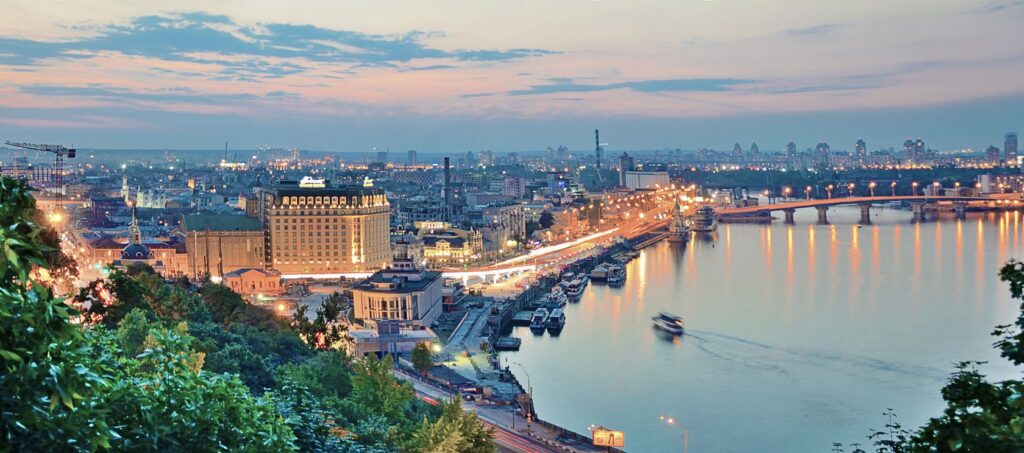
— What, in your opinion, should change in Kyiv, and what are the main challenges facing it today?
— There should be an adequate local government in Kyiv that treats the city responsibly. It is about respecting both history and the great future that will follow their terms. At the same time, the authorities should not use the city’s resources to realize their financial interests.
Looking to the future, local officials should not distort the city and make mistakes that cannot be corrected. This is primarily related to the planning of the development of the city, issues of infrastructure and buildings – residential and non-residential. A very important point is the attitude towards historical monuments and architectural findings.
After all, if there is an adequate government in Kyiv, it will normalize all these processes and turn Kyiv into a real European city. All technologies and capabilities are already known, sufficient resources are also available, so it is only a matter of political will.
Worked on the material
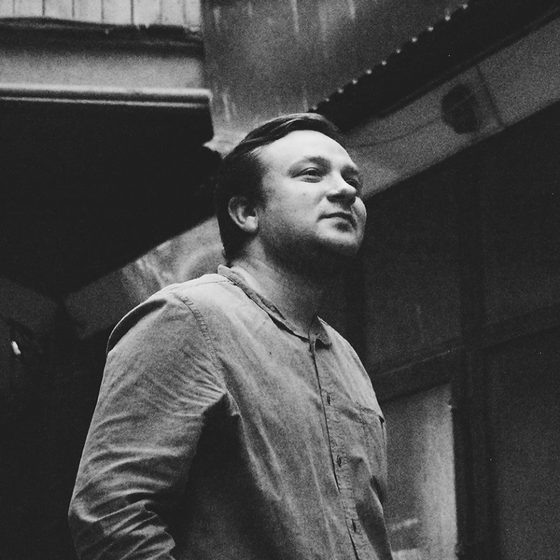
Yaroslav Karpenko
Editor in Chief

Yana Sychova
Editor
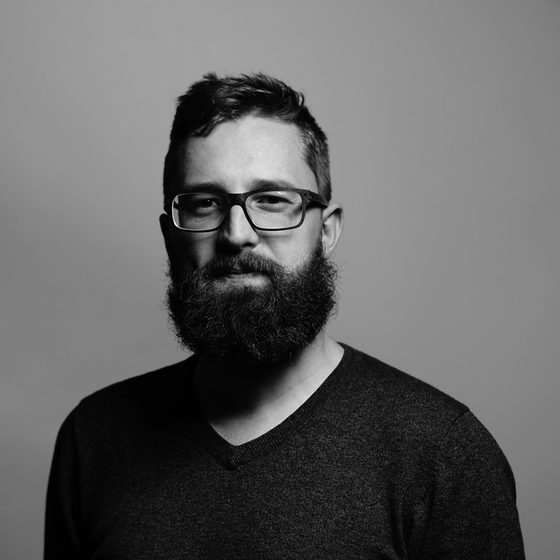
Valentin Kuzan
Photographer

